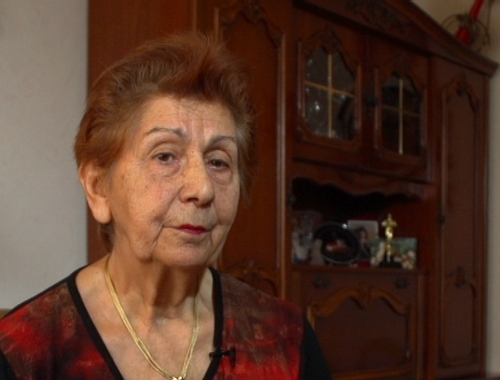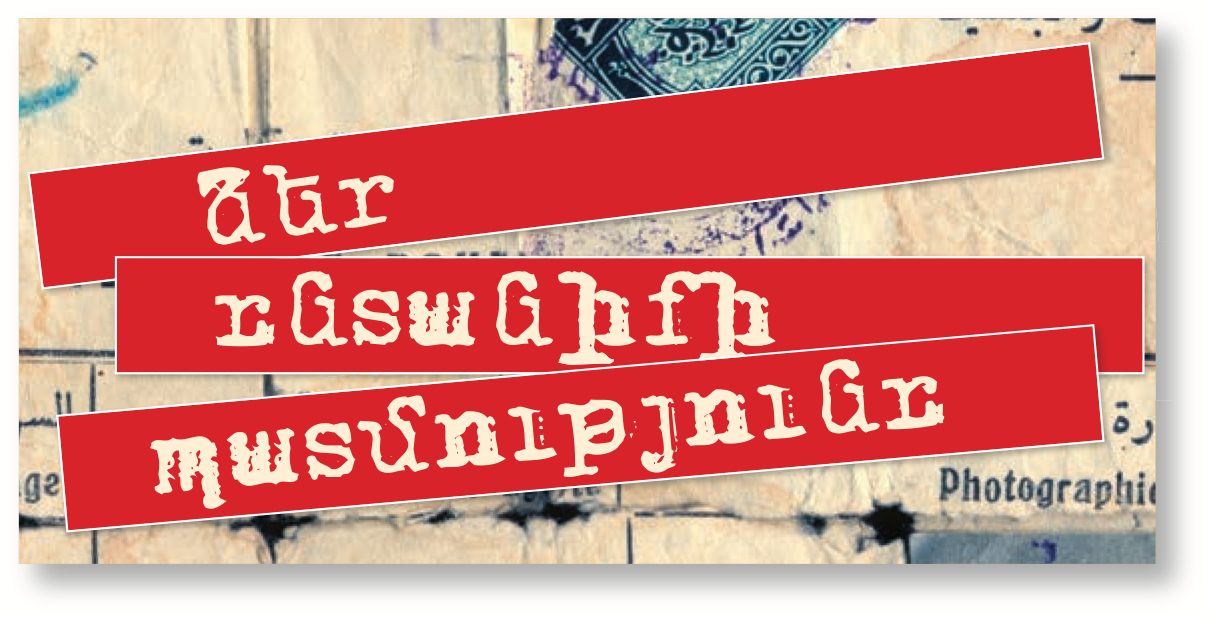 Immigrated from France in 1947
Immigrated from France in 1947
Tereza Karajian-Dankovski
My mother died in 1945. My father probably wanted to move to Armenia to bring some change into his life. The propaganda that life was good in Armenia was also strong. He decided to take us to Armenia.
A ship took us as far as Batum. We then boarded a train and they let us off in Kirovakan. We were four to a room – my father, me, my sister and brother. I remember that when we cut bread, this much would remain on the knife. It was like mud; terrible bread. We would often cry and say, “We are hungry, we want food.” We were hungry.
My father started to work as a laborer at a construction site in our neighborhood. It was called the evacuation center. It hadn’t been finished. We would go and see or father lifting these heavy stretchers. I would cry and pity my father.
I know nothing about my mother. If I talked about her with my father, he’d get very emotional. He didn’t talk about her.
We complained. I cried very much and said that I wanted to see my grandmother. My brother, who was 16, always argued with my father. He would say, “Why did you bring us here?” My father regretted bringing us, but would say this is your homeland, you have to grow up here and learn the language. We didn’t speak Armenian that well.
I remember my father telling us in France to speak Armenian at home and to speak whatever we wanted outside. When we came to Armenia he would say, “Now, speak French at home and Armenian outside.”
That evacuation center building of ours had ten apartments. But it was built in such a way that our room was supposed to be a kitchen and the others, bedrooms. There were separate families in all of them. We’d get up in the morning and see that the neighbors were gone. The rooms were empty. They’d say that the people had been deported. We were told not to speak about it, that the walls and trees had ears.
I didn’t receive a college education. I wasn’t accepted. My brother would move about all the time. He’d go to Yerevan or Tiflis. He didn’t stay in Kirovakan. He didn’t continue his education. He’d do translations and other things.
Our material situation was very bad. I went to work before finishing school. I took accounting classes at night. I started to work as an account and then as a senior accountant. I then came to France.
To be honest, I didn’t want to leave Armenia for France, because things had gotten better. My children were studying at university in Moscow. Our financial situation wasn’t bad. It was good. My husband was a blacksmith and made decent money. We never thought about leaving, but we lost everything in the earthquake.
The consul from the French Embassy in Moscow came to Kirovakan. He told all those French people who had suffered (my father was registered there but not us), that we would have to start from zero and asked why we didn’t want to go to France. My brother had already gone to France. Finally, we too decided to go to France and start our lives from zero in France.
My daughter was in the second course at Moscow when I submitted our papers to the embassy. I would say, let them refuse us. But we got accepted and went. We arrived and I’d cry the whole day. I would see someone and think they were my neighbors or girlfriends. I was depressed. I lost 18 kilos in a year. Later, the family decided to send me to Armenia. I went to Armenia and calmed down a bit. I came back and the depression slowly faded. I gradually got used to things.
Soviet life for the average person wasn’t bad. But I believe it wasn’t good for those people at the top, the professionals, film makers and writers, because not everything was allowed. For us, the working class, I believe the country was good. It wasn’t bad.
The Soviet Union collapsed because it was based on deceit, in my opinion. When I was working as an accountant I saw the numbers the ministry presented just to get awards and such.
During the years we lived in Armenia we learnt a lot when faced with hardship. They read a lot and love music. Personally, I love classical music. Here, not everyone listens to it. We read a lot. We learnt much in Armenia. Most of all, there was humanity – host people, see them on their way, and be hospitable.
The repatriates also gave much to Armenia. For example, people in Kirovakan didn’t know much. We would make coffee. Initially, there was no coffee in Armenia. It was hard to come by. We’d give our guests coffee. They’d say we had given them bitter water. Slowly, they too started to drink coffee. Many good craftsmen, tailors and barbers, also went to Kirovakan from here.



















